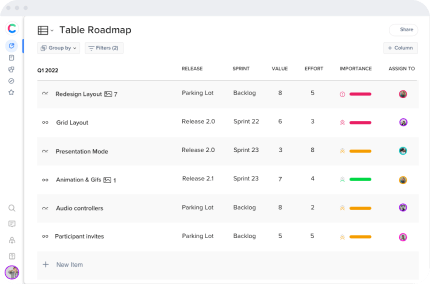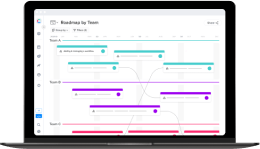What is a business plan?
Definition of a Business Plan
A business plan is a strategic document that outlines the strategic objectives of a developing business or startup and the steps the company intends to take to attain those objectives.
In other words, a business plan is a written statement of a business idea that describes your company model, your product or service, how it will be priced, and who will be your target market. The techniques you intend on employing to achieve commercial success.
Importance of a Business Plan
While every business should have some form of plan in place, a business plan is critical throughout the funding process. If you want to make a solid investment decision, banks, venture capitalists, and angel investors will all require a detailed plan – this will help convince them that your idea is worth their time and money.
.
When it comes to starting a new firm, business plans may be beneficial in keeping it on track, especially in the initial few months or years when the path ahead isn’t entirely obvious.
Who should be in charge of writing a business plan?
This is usually assigned to the CEO or executive team; some companies choose to hire consultants in this phase which can prove very beneficial. A consultant can help ask the hard questions you need to answer and might be more experienced in this space at this stage of the plan.
Starting a business isn’t an exact science, and it takes time and effort. Some businesses grow organically due to trial and error, while others are meticulously planned from the beginning to the end.
Consequently, if you’re wondering whether your company requires a comprehensive business plan, the answer is ‘no.’ That being said, there are a few instances in which creating a business plan makes sense and can assist raise the likelihood of a company becoming successful.
The Pros And Cons of a Business Plan
Are you debating whether or not a business plan will be beneficial to you at this point in your venture’s development? Here are a few reasons you might (or might not) want to construct a business plan and how to go about it.
Pros
● Even if you have no prior trading experience, a company strategy will assist you in obtaining financing. Funding is critical during the seed stage, particularly for technology and SaaS businesses. At this point, a company plan can prove to be essential.
It is important to remember that your business plan will maintain a strategic focus as time progresses. If you’ve ever heard of the term “mission creep,” you’ll understand how crucial it is to have a plan in place — and your business plan fulfills precisely that function.
Having a plan written down in black and white can make it easier to convince others to join you. Again, if you have no prior trading experience, it can be challenging to persuade prospective partners that you know what you are doing. This difficulty is solved through the use of a business strategy.
Further benefits include:
● A business plan can be a precious tool for software businesses with no previous trading history, such as SaaS companies, to secure long-term funding.
● A business plan, especially in cases where the market is new and untested — or just volatile — can be beneficial when the road ahead is not apparent.
● People who have an exciting business idea but have not yet refined it to a point where one can describe it easily. When you write a business plan, you have the opportunity to examine a proposal from every viewpoint and identify any potential hazards.
Cons
However, despite all the said advantages, Your company plan may cause you to lose sight of the big picture. Sometimes, especially in business, it is necessary to be agile and react quickly to changes in the market. By placing too much emphasis on your original company strategy, you may make costly mistakes or miss out on valuable possibilities because they weren’t in the original plan.
Analyzing performance might take up a significant amount of time. It’s easy to become overly focused on your company plan’s goals and objectives, especially if you aren’t making progress toward meeting those goals and objectives. In spending too much time studying past performance and looking back, you may miss out on opportunities to move the company forward in new directions.
As soon as a business strategy is developed, it is considered outdated. We are all well aware of how quickly market conditions may shift. And sadly, by the time you’re ready to launch, some parts of your business plan may have become outdated or irrelevant. However, a third option is to convert your strategic plan into an actionable roadmap, allowing you to have both worlds’ best. The business plan contains necessary details that are less likely to alter, such as your goal statement and target audience. At the same time, the roadmap explains a flexible, adaptable path forward for the company’s future growth.
What is the best way to draft a business plan?
Identifying the aim of a business plan is the first and most crucial stage in drafting one. Whom are you attempting to attract with it, and why are you doing so?
Here are a few essential considerations while preparing a business plan:
Are you attempting to receive a bank loan, obtain capital from private investors, or recruit highly qualified individuals to join your team? You should include a brief history of your company, the concept, and the items or services you offer. Maintain a professional and straightforward demeanor.
Make sure not to inflate your expertise or abilities, and make sure not to leave out anything that investors need to know. If they were to discover they were misled, they may decide to terminate their affiliation with you. The importance of trust cannot be overstated.
Provide a straightforward explanation of the product or service that your company provides. Concentrate on the company’s benefits, how it solves the problem(s) of the target audience, and what proof you have to support your claim that there is a demand for your product or service. It is critical to discuss the market in which your company will operate and who your primary competitors will be.
Another essential part of developing a good business plan is to keep it as brief and to the point as possible. Concentrate solely on presenting the critical information that the reader requires to make an informed decision. They can always come back to you and ask you to elaborate on particular issues.
The Phases Of a Business Plan
So you’ve decided to draft a business plan, which is a fantastic decision!
However, the difficult work of actually writing it now awaits.
Because there is no one-size-fits-all template that you can use for all business plans, the most effective strategy is to examine typical elements of a business plan and select appropriate ones for your particular endeavors.
The essential components of a successful business plan
A summary of the company’s business model (executive summary) is effectively the elevator pitch for your company. Provide a thorough explanation of the product or service. This section will outline your core offering – what is your unique selling proposition, and what value do you provide? An explanation of who the intended audience members are.
You must know who you’re marketing your product or service to and support this with industry research. Your sales and marketing plan is outlined here. Now that you’ve identified your target audience, how do you intend to approach them? Below are some essential strategies for attracting and keeping a loyal clientele with a good retention rate.
Do you already have a group of individuals supporting you? If not, how will you put together a team, and what will be the timeline? What makes your team the most qualified group of people to bring this concept to market? In the event of soliciting external funding, this component is critical since, in most circumstances, a person’s enthusiasm can take them considerably further than their professional experience.
Predictions about the financial future.
Considering that some investors will read the executive summary and go right to the financials, you should expect your projections to be reviewed in great detail. Are you writing a business strategy solely for your benefit? Even if that’s the case, you should still take the time to plan your financial requirements: how much money will you require to get started? How do you intend to ensure that money continues to flow in? How long will it take for the business to break even? Keep in mind that cash is pivotal. As a result, you must have a cash flow estimate that is practical and achievable and ensures that your business remains afloat, particularly during the difficult initial few years.


